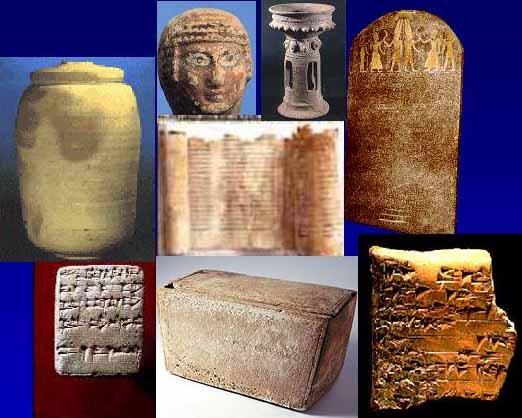
Archaeology is a fascinating field. Its relationship to the Bible has captured the interest of many with movies such as "The Mummy" and "Raiders of the Lost Ark". Interestingly, the relationship between archaeology and the Bible is often misunderstood. It is commonly believed that archaeology has been able to prove or disprove the Bible. In reality, archaeology by its self doesn't prove or disprove the Bible at all. What it can do is provide credibility about things mentioned in the Bible. This makes archaeology important to the Bible because the Scriptures tell us about real people in real places and real events in history.
Archaeological discoveries have supported the Bible by proving that statements about, places, people and events which the Bible speaks of are true. By using historical documents outside the Bible, we are able to confirm many of the people mentioned in the Bible. There are over 50 people named in the Old Testament that are known outside the Bible. Archaeological discoveries have indeed demonstrated the credibility of the Bible.
It's unfortunate that many people today believe the Bible is irrelevant and nothing more than an ancient myth. Since the Bible is a religious book, there are those who have argued that its content is corrupt and historically inaccurate. These attempts to discredit the historical reliability of the Bible are based on their belief that its origins are mythical. Normally, it is routine to give ancient documents credit for statements about history, names, and places unless there is evidence to demonstrate otherwise. It is important to realize that so far no discovery has been made that disproves the Biblical account. Although, some archaeological interpretations may be arguable, this does not disprove the accuracy of the scriptural account. In reality, archaeological discoveries have moved us toward reinforcing the credibility of the Bible rather than away.
Archaeological discoveries continue to show how historically accurate the Bible really is. It is by far the greatest document the world has ever known, surviving centuries of ridicule. God has remarkably preserved His message to us, which still provides the much-needed means of navigation in today's world. The real question that one should consider is: How much proof does it take for one to believe?